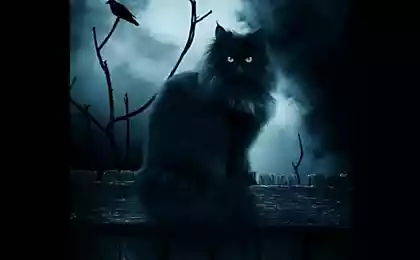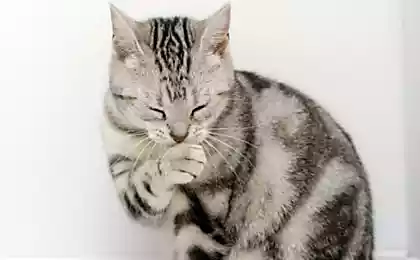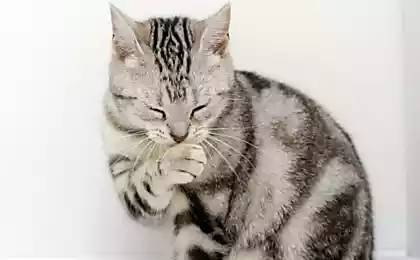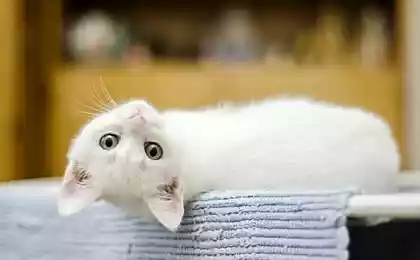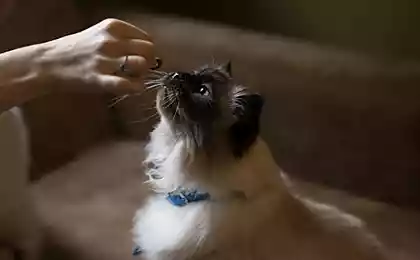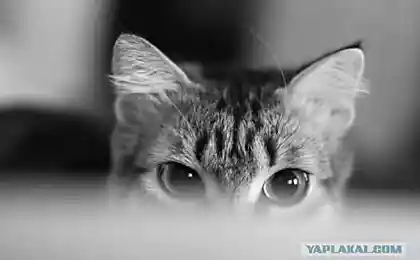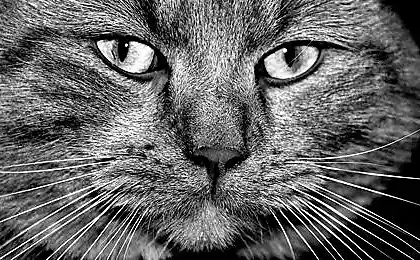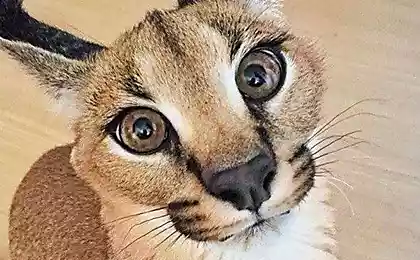758
Why domestic cats do not care about their owners
Beware koshkaDomashnie favorites, namely cats and cats are often indifferent to their owners. Recent studies of the genes explain why this is so.
Scientists from the Faculty of Medicine at Washington University in St. Louis found that the genes of domestic cats are not much different from the genes of wild their brethren. This explains why they ignore their masters and behave autocratically. Maybe it echoes the behavior of wild cats.
Why domestic cats are excellent hunters? As a rule, domestic cats - skilled hunters, thanks to genetic features, which also have wild cats, making them efficient predators. In addition to the skills of the hunter, our pupils have learned from the wild relatives of sharp vision, a fast response and an innate desire to kill. Wild instincts are clearly visible - a claw grip, hit the back legs, the pursuit of production (for example, domestic cats are worn for a laser pointer). This behavior is formed in domestic cats during the first 52 days of life. And even if you give them enough food, they will still chase prey, though it will not be there.
Some breeds of domestic cats are very similar to their wild brethren. For example, the savanna - a hybrid domestic cat and an African serval.
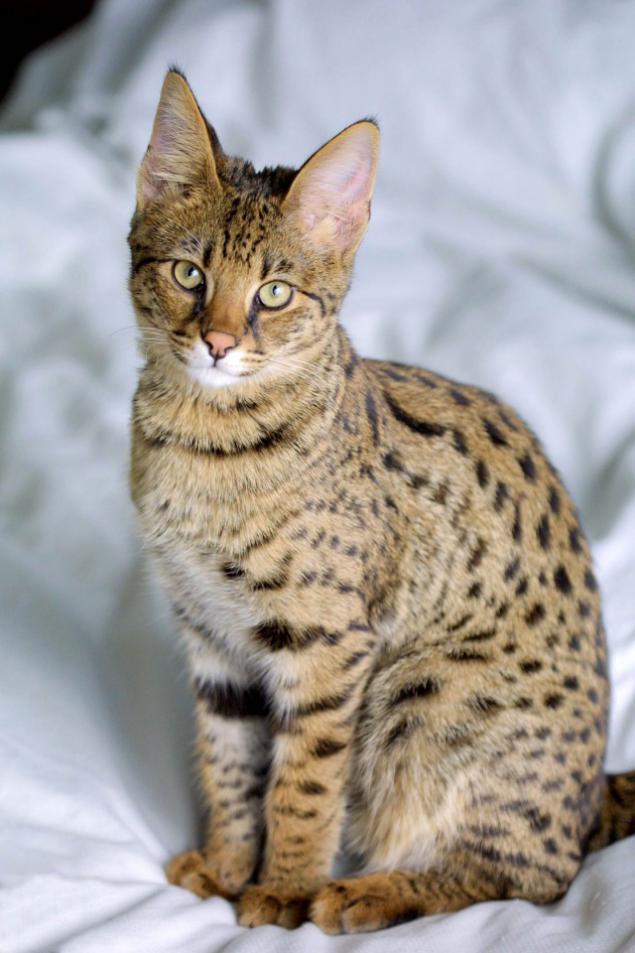
why cats can lure a treat? Although domestic and wild cats have much in common, due to genetic differences former can get along with people. It is connected with the development of conditioned reflexes to experience feelings of fear, as well as the promotion of reflexes.
In fact, representatives of the cat family is difficult to scare, but it does not explain the neurotic tendencies of domestic cats. As for the promotion of reflex, they easily learn to associate their action with any subsequent reward. Cats quickly learn, for a "good" behavior they will get the promotion. The fact that the cortex of the brain responsible for processing information about the awards, has the largest number of cells, so domestic cats quickly learn how to get the desired delicacy.
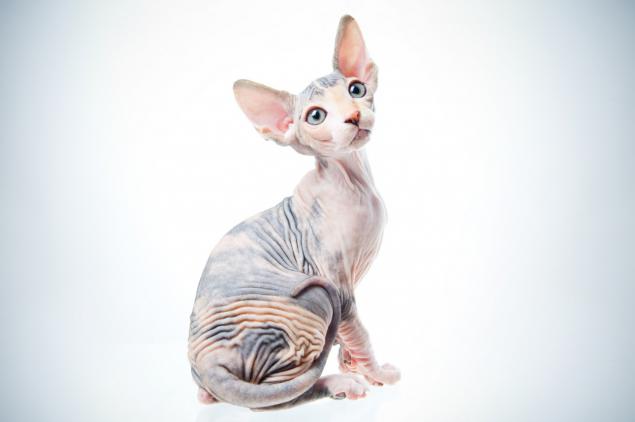
Cats are like sobakKoshki save more similarities with their wild cousins than dogs. But the process of domestication began, most likely with them, because they have an increased obedience and it is easier to communicate with people. These changes are the result of samoodomashnivaniya.
It is interesting that, the same thing happens at an early stage of genetic modifications in the dog. The earliest changes that they appear - lowering hostility and changes in social cognition. But if you talk about the evolution, the cat was still early in the process of domestication, compared with dogs. And, most of all, do not expect that cats ever become like dogs.
via io9.com/why-house-cats-generally-dont-care-about-you-1662861634
Scientists from the Faculty of Medicine at Washington University in St. Louis found that the genes of domestic cats are not much different from the genes of wild their brethren. This explains why they ignore their masters and behave autocratically. Maybe it echoes the behavior of wild cats.
Why domestic cats are excellent hunters? As a rule, domestic cats - skilled hunters, thanks to genetic features, which also have wild cats, making them efficient predators. In addition to the skills of the hunter, our pupils have learned from the wild relatives of sharp vision, a fast response and an innate desire to kill. Wild instincts are clearly visible - a claw grip, hit the back legs, the pursuit of production (for example, domestic cats are worn for a laser pointer). This behavior is formed in domestic cats during the first 52 days of life. And even if you give them enough food, they will still chase prey, though it will not be there.
Some breeds of domestic cats are very similar to their wild brethren. For example, the savanna - a hybrid domestic cat and an African serval.

why cats can lure a treat? Although domestic and wild cats have much in common, due to genetic differences former can get along with people. It is connected with the development of conditioned reflexes to experience feelings of fear, as well as the promotion of reflexes.
In fact, representatives of the cat family is difficult to scare, but it does not explain the neurotic tendencies of domestic cats. As for the promotion of reflex, they easily learn to associate their action with any subsequent reward. Cats quickly learn, for a "good" behavior they will get the promotion. The fact that the cortex of the brain responsible for processing information about the awards, has the largest number of cells, so domestic cats quickly learn how to get the desired delicacy.

Cats are like sobakKoshki save more similarities with their wild cousins than dogs. But the process of domestication began, most likely with them, because they have an increased obedience and it is easier to communicate with people. These changes are the result of samoodomashnivaniya.
It is interesting that, the same thing happens at an early stage of genetic modifications in the dog. The earliest changes that they appear - lowering hostility and changes in social cognition. But if you talk about the evolution, the cat was still early in the process of domestication, compared with dogs. And, most of all, do not expect that cats ever become like dogs.
via io9.com/why-house-cats-generally-dont-care-about-you-1662861634
Computer security: everything you need to know to protect your data on the network
Why do participants Mars One will never go into space



